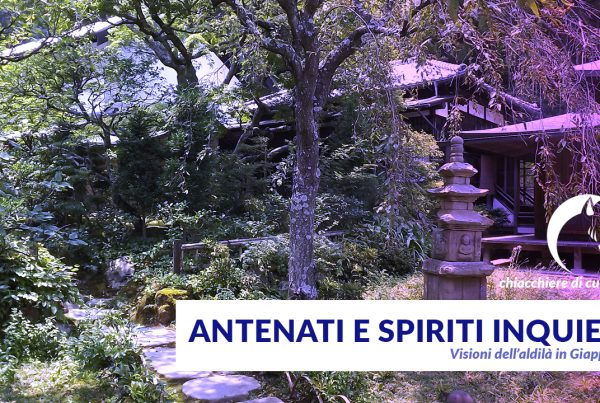Tōhoku area witnessed the development of a different form of shamanism and japanese popular religions, characterized mainly by the fact that here we have sighted persons (in some case also male practitioners) called kamisama カミサマ, kamisanカミサン, gomisoゴミソ, etc., who entered the profession through a completely different path and developed different skills and practices. Their number is still higher than that of the itako, and often their popularity is widespread. They usually become shaman as the result of a personal physical or mental trauma that led them to ascetic practice and eventually to the contact with the kami.
I could meet two very different professionals in Aomori-ken, Kimura Fujiko木村藤子 (in Mutsu-shi), a charming and interesting woman in her sixties, and Iyo san イヨさん (from Hirosaki area) an older woman in her eighties who faced a long training in the mountains. Here, I want to share with you my experience with Kimura-san.
A powerful and magnetic woman
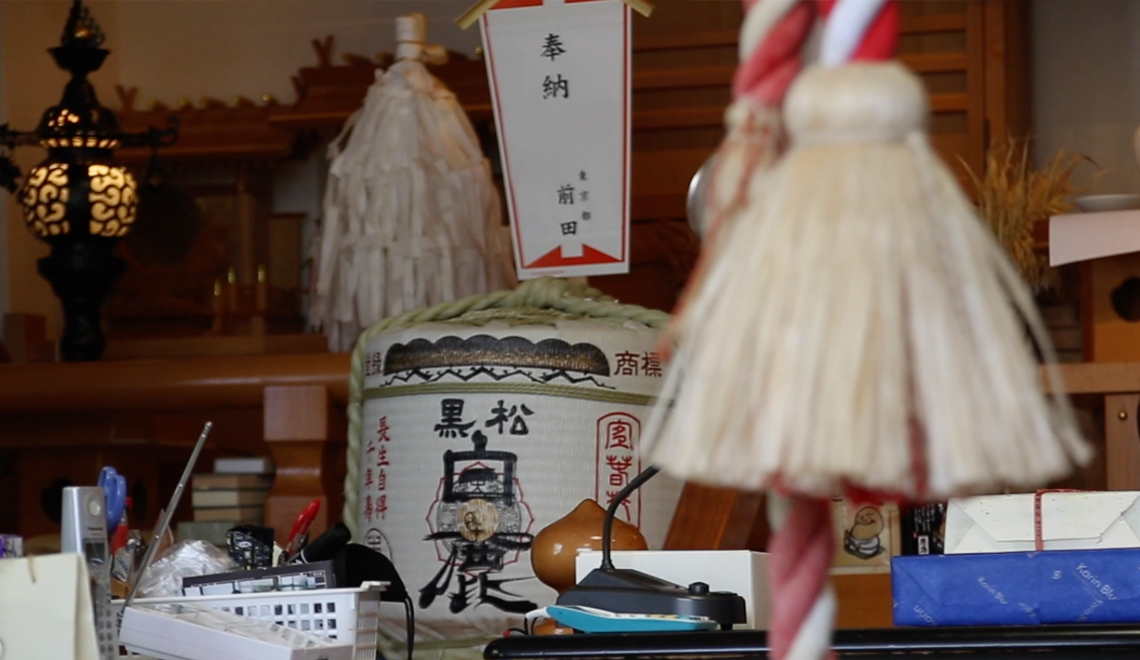
Picture by Edmondo Perrone
The meeting with Kimura san took place on July 28th, 2014, at her home in Mutsu-shiむつ市, in the Shimokita peninsula, Aomori-ken; I visited her with my informant Sachiko-san who, in the previous days, sent Kimura the possible questions I meant to ask so that she could get ready for the day. Kimura awaited us at her home, a big two-stories white house in the center of Mutsu, a place she uses also for her business; it has indeed a wide hall in the entrance where all her books are on display, a waiting room and a smaller room with a huge shrine surrounded by offerings and gifts from her clients.
She is a very popular kamisama, not only in Aomori-ken but in the whole country, since she often appears on national television, and she wrote several popular books about her work and her beliefs. Thus she has a very busy schedule that forced me to arrange the meeting two months in advance. Sachiko and I are invited in the living room by Kimura’s assistant, while the kamisama quickly appeared in the room to reassure us she was about to arrive. After a few moments, indeed, Kimura arrived: she was a pleasant woman of about sixty, sixty-five years old, with short hair and a very polished look. After the first greetings, Sachiko started to explain in her very elegant Japanese the reason for our visit, and the topic of the research.
A soft voice and a strong message
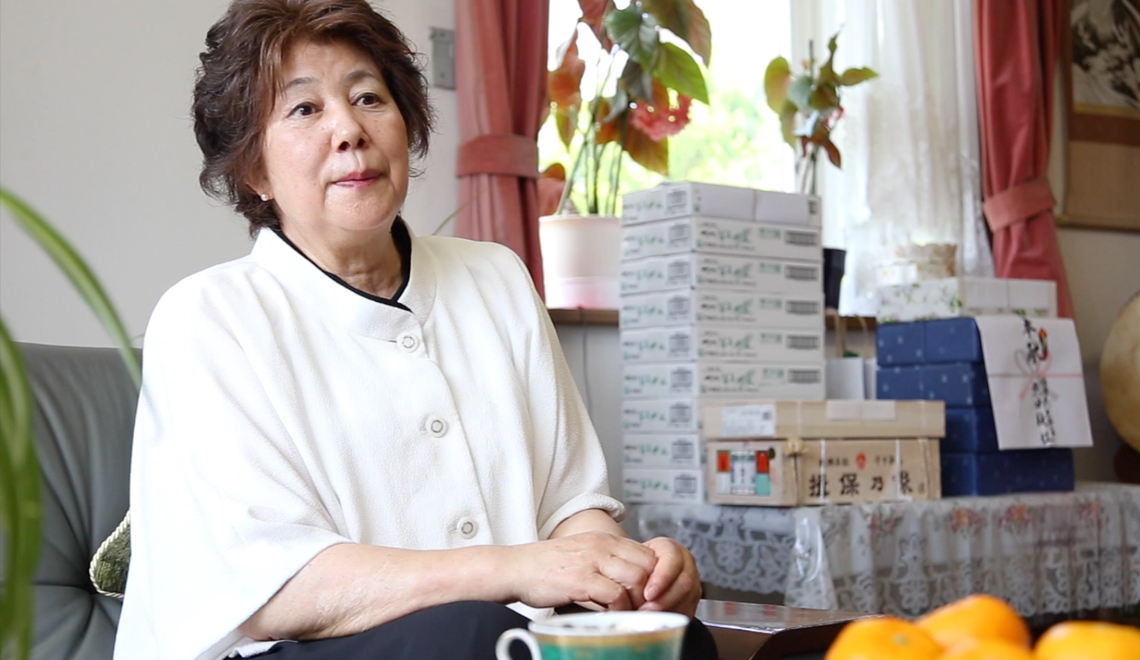
Picture by Edmondo Perrone
Since we sent Kimura the questions some days earlier, in the beginning the interview went on almost without any need for me or Sachiko to interrupt her discourse, and we limited our action to short interactions for clarifications and corrections. In the first part of her speech, Kimura was very concern with the problem of true or false power; this emerged as a core issue in her discourse, representing for her practice and for her business a central problem.
Religion and power
Her discourse articulated in two main ways: on the ona hand, she was very critical towards some religious institutions (such as temples and shrines) that operate with the false pretense of religious power only in order to increase their incomes. She affirmed that the real power is something very rare, and it can really be helpful for people in needs, but at the same time she pointed out that in most cases the institutional religions don’t have such power, and they only use people’s faith to attract new believers and money.
Furthermore, she defined practice itself useless to obtain real power; the real power is bestowed by the gods, and ascetic trainings or apprenticeship are in no way a means to develop it. On the other hand, and as a natural consequence of these premises, she strongly defended her power as true and benevolent for her clients; she stated that she only uses this source for the good of people, in opposition with other practitioners who are envious of her success and try and scare her away. Clearly, she considers herself a guardian of the real power of the deities’ gōriyakuご利益 (grace of God, Buddha, etc.)[1], and their messanger; she started her activity some thirty years ago in Mutsu, where she’s still living with her husband, and during her years of activity, as she mentioned various times, she had several problems with other practitioners and institutions that often questioned her power and her ability, and accused her of hurting people.
Her call and her resistance
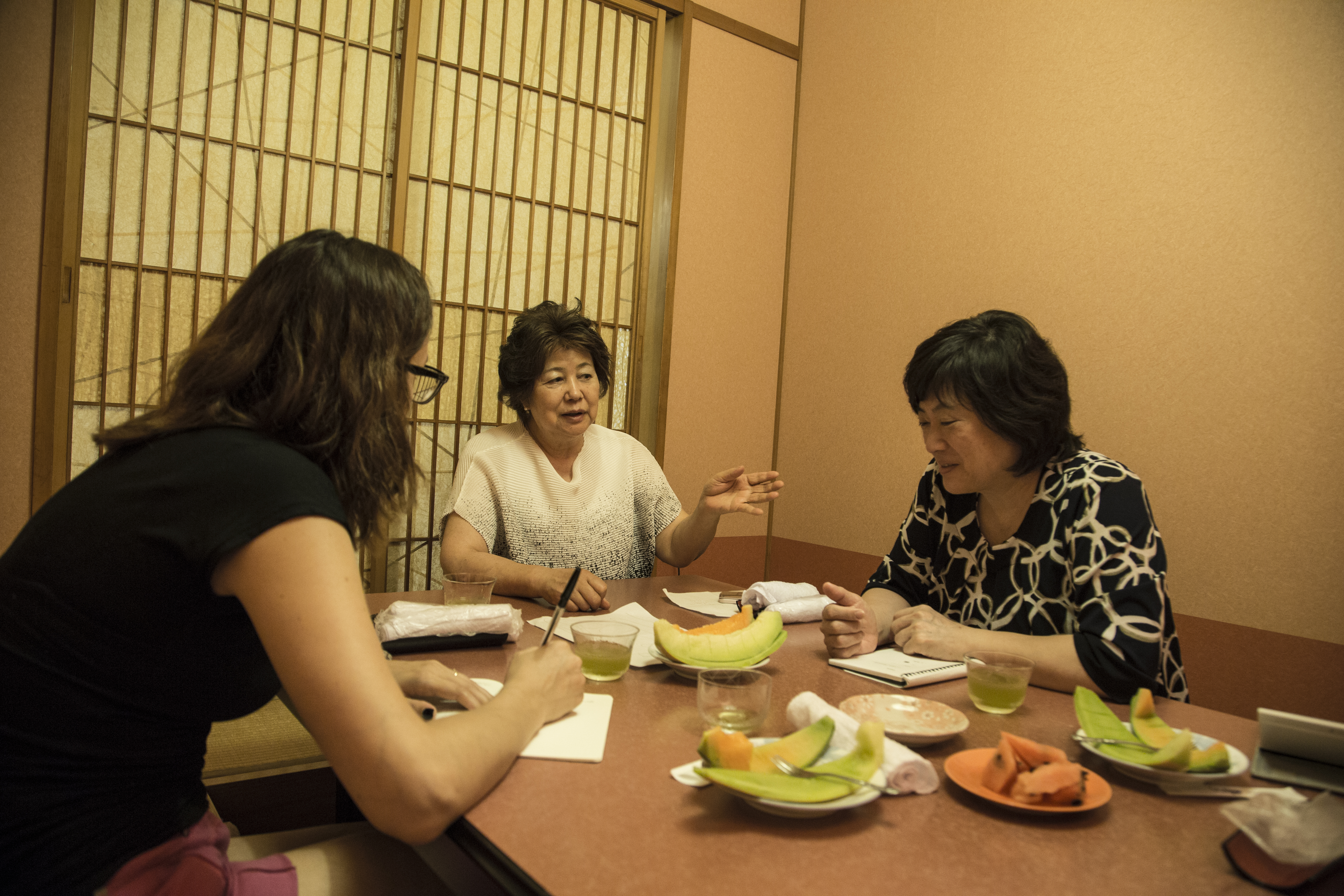
Picture by Edmondo Perrone
Her beginning as a kamisama was particular, since – as she said – she refused the kami’s power two times, and accepted this path only on the third time; back then, she was a housewife (she stressed the fact that she couldn’t study, and she recognizes the importance of a proper education), and was raising two kids, so she had no intention to make such a big change in her life. Unlike other kamisama experience, she didn’t undergo any physical or mental trouble, and her power, as she suggested, was the result of a hereditary transmission since her mother too was a mighty kamisama; she described her own power as the ability of seeing through
My son was in highschool; I already developed my power but still didn’t enter the [kamisama] profession. I could see my son falling asleep on his bedroom’s desk even without entering the room. One day, I told my soon not to sleep (…) but my husband complained with me, telling me not to do that again; he decided to call my mother to ask her what to do [about the power]. My mother then suggested not to talk about it with anyone, for the moment; she was very surprised that I didn’t tell my family about the appearance of these power, but she could understand that for them the situation was really strange. My son was scared about the power, and my husband was really worried; my mother asked him what were his feelings about me starting this new activity, but he couldn’t tell, he needed to talk about it more and understand it more.
Kimura, July 2014
Too many rejections
As Kimura recounted, her mother was very attentive about her daughter’s reaction to the power. She warned her not to reject the kami anymore, because they wouldn’t ask a fourth time. When finally the kami called her the third time, she experienced a sort of initiatic dream, which represented the final passage to her new life
In the dream I was wearing a multilayerd kimono and a shaku, and I found myself in the worship hall. A woman walked toward me, with a beautiful twelve-layers kimono[3]; I saw her walking in the shrine hallway, and I couldn’t understand what she was doing there. As she got closer to me, I could see her face, and she was me, staring like in a mirror. Then, I became that girl, and I saw two men dressed in white who accompanied me through a hallway, at the end of which the doors opened; I kept walking in a place with windows on both sides, and I suddenly felt very nostalgic, it was a very familiar place. I was not nervous, I felt at peace. The two men kept following me, with a very polite, tender look, and as I slowed down, I realized that the hall was filled with Shintō priests seating at my sides; in the middle of the all, looking at me, was Amaterasu surrounded by some lower rank kami. She called me, and as I approach the other kami asked her authorization to give me the power; a kami talked to me: “you finally arrived! You have work to do, but you need something to protect yourself. I am giving you the protection” And saying this, the kami gave me a sword, a bowl and a jewel [Tama]. I was a little disappointed to receive such old things, so I hesitated but the kami insisted for me to take them.
When I told my mother about this dream, she worried and she told me not to complain, but to be grateful and accept the gift. Only later I understood the importance of it.
Many people want that power and train very hard, but I didn’t practice and receive the power all the same; this is not the life I wanted for myself, but it’s the path I have to follow, and now I understand that is my duty to help people
Kimura, July 2014
An active member of the community
After reporting her dreams in details, which clearly represented the initiation of the kamisama, we went on discussing another issue, for her equally important, namely her actual work in the community and the main requests she receives from her clients. Discarding quickly her TV appearances, she reported that she’s mainly asked for uranai (divination) and clairvoyance, and kamigoto; people usually come to her with very serious problems concerning their family and their relationship with children and parents, and they ask for indications on what to do and how to solve the situation.
Family matters
She feels that this is the result of a miscommunication within the family, where the parent-child relationship is reduced to a superficial exchange or to a company-like structure, where children are often requested to study all the time, and there is no sharing moment among the family members, and no place for the parents to teach effectively their children how to behave or how to relate with others. A lot of requests are also about money, and the possibility to improve one’s life and economic possibilities.
In this sense, the relationship that local people establish with the kamisama resembles what Matsuda-san previously described as counseling, a place and moment to deal with one’s family problems and talk about them openheartedly. This is the reason why, according to Kimura, the folk practitioners are so important for the local communities; while institutional religions offer a set of practice and belief that often don’t meet the actual need of the believers, shaman-like practitioners are closer to people’s needs and worries.
An issue with power
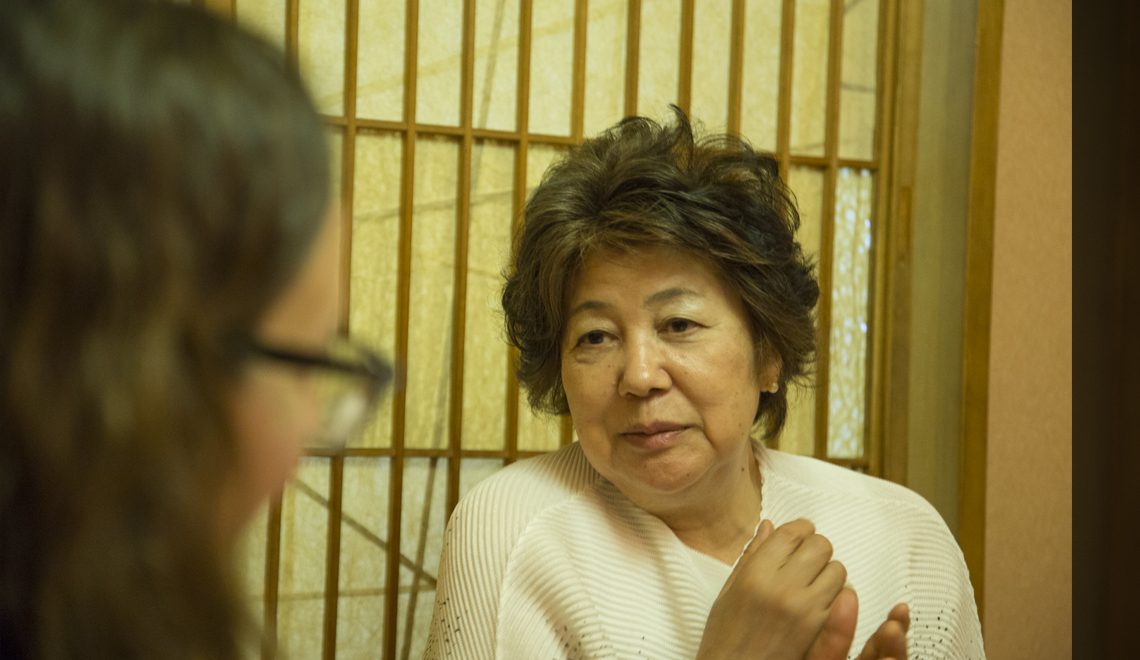
Picture by Edmondo Perrone
Through the whole conversation, she returned various time on the concept of true power, institutional religions and false practices; she was very harsh in condemning the behavior of the Buddhist and Shintō clergy, and their concern with money and wealth, and at the same time she was very critical against all the “false practitioners” who pretend to have divine powers while they truly are con artists who deceive people to get their money. As she repeated several time, the true power comes from the gods, is something that is given by them and them only; in connection with this main topic of power, she reported that she doesn’t have any apprentice because this is not something that can be taught, but it’s a gift from the god that chooses its own messenger.
Many people come to me to become my apprentices; they want to be powerful, they think that If they have power they can have everything and have money. I say no to them, it’s useless, I cannot give power to other person, the gods judge if the people are qualified to get the power. That’s why some practitioners [shamans] make warship halls, they want to hide the fact that they don’t have power […] You must care about people.
Kimura, Juli 2014
The distinction between true and false power was very important to her, and brought about a wider discussion about the situation of religions in the modern society, the inability of institutional religions to respond to people need, and the necessity for a renewal; even if the power is the gift of the kami, there is a way to be helpful to people even without it, says Kimura, but it is important to care more about the people’s need and troubles and forget about the money and one’s own well-being. She clearly conceived our meeting as a means for her message to be widespread in new different directions, and to establish her role as a (maybe the only) reliable practitioner in a untrustworthy religious landscape.

